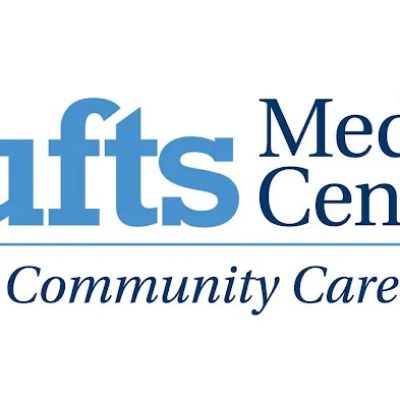Heart Disease and Managing Cholesterol Levels: A Comprehensive Guide
- 1. Understanding Heart Disease and Cholesterol
- 2. How Cholesterol Affects Heart Health
- 3. Managing Cholesterol Levels for Better Heart Health
- 4. Lifestyle Changes to Lower Cholesterol
- 5. Medications for Cholesterol Management
- 6. HeartCare Hub Recommendations for Managing Cholesterol
1. Understanding Heart Disease and Cholesterol
Heart disease is one of the leading causes of death worldwide, with cholesterol being a major factor in its development. Cholesterol is a type of fat found in the blood that is necessary for building cells and producing certain hormones. However, when cholesterol levels become too high, it can lead to the buildup of fatty deposits in the arteries, increasing the risk of heart disease.
There are two main types of cholesterol: low-density lipoprotein (LDL), often referred to as "bad" cholesterol, and high-density lipoprotein (HDL), known as "good" cholesterol. While LDL contributes to plaque buildup in the arteries, HDL helps remove excess cholesterol from the bloodstream. Maintaining a healthy balance between these two types of cholesterol is crucial for heart health.

2. How Cholesterol Affects Heart Health
High cholesterol levels can have a direct and harmful impact on heart health. When LDL cholesterol levels are too high, it can begin to accumulate in the walls of the arteries, forming plaque. This plaque can narrow and harden the arteries, a condition known as atherosclerosis. Atherosclerosis restricts blood flow and oxygen to the heart, which can lead to serious heart problems, such as heart attacks and strokes.
In addition to the risk of plaque buildup, high cholesterol can also contribute to other conditions, including high blood pressure and increased strain on the heart. Over time, these factors can increase the risk of developing coronary artery disease, which can lead to chest pain, heart attacks, and even heart failure.
Atlanta Heart Specialists
atlanta heart specialists
4375 Johns Creek Pkwy #350, Suwanee, GA 30024, USA

3. Managing Cholesterol Levels for Better Heart Health
Managing cholesterol levels is one of the most important steps you can take to protect your heart health. Regular monitoring of cholesterol levels, through blood tests, is essential for understanding your risk. A healthy cholesterol level typically includes an LDL level of less than 100 milligrams per deciliter (mg/dL) and an HDL level of 60 mg/dL or higher.
There are various methods available for managing cholesterol levels, including lifestyle changes and medications. It's important to work with a healthcare provider to develop a personalized plan that fits your needs and goals. Monitoring cholesterol regularly and maintaining a healthy lifestyle can help you prevent the progression of heart disease and reduce your overall risk of heart-related issues.
4. Lifestyle Changes to Lower Cholesterol
Making healthy lifestyle changes can significantly improve cholesterol levels and lower the risk of heart disease. Here are some effective strategies for lowering cholesterol naturally:
1. Diet Modifications
One of the most impactful lifestyle changes for managing cholesterol is improving your diet. Eating a diet rich in fruits, vegetables, whole grains, and lean proteins can help lower cholesterol levels. Reducing saturated fat and trans fat intake, found in foods like red meat, butter, and processed snacks, can also help decrease LDL cholesterol.
2. Regular Physical Activity
Exercise is another key factor in managing cholesterol. Engaging in regular physical activity, such as brisk walking, jogging, or cycling, can help raise HDL cholesterol while lowering LDL cholesterol. Aim for at least 30 minutes of moderate-intensity exercise most days of the week to improve heart health and manage cholesterol levels.
3. Weight Management
Maintaining a healthy weight is crucial for managing cholesterol levels. Excess weight can contribute to higher LDL cholesterol and lower HDL cholesterol. By losing weight through a combination of diet and exercise, you can improve your cholesterol levels and reduce your risk of heart disease.
5. Medications for Cholesterol Management
For individuals who are unable to manage cholesterol levels through lifestyle changes alone, medications may be prescribed. Statins are the most commonly prescribed medications for lowering LDL cholesterol. These drugs work by blocking the liver's ability to produce cholesterol and are often recommended for people with high cholesterol or those at high risk for heart disease.
In addition to statins, other medications, such as bile acid sequestrants, cholesterol absorption inhibitors, and PCSK9 inhibitors, may be used depending on individual needs. Your healthcare provider will assess your cholesterol levels, overall health, and risk factors to determine the most appropriate medication for you.
It's important to note that while medications can help manage cholesterol, they should be used in conjunction with lifestyle changes for optimal results. Regular follow-up appointments with your healthcare provider are essential to ensure that your treatment plan is effective and that any side effects are managed.
6. HeartCare Hub Recommendations for Managing Cholesterol
At HeartCare Hub, we offer a range of resources to help you manage your cholesterol and improve your heart health. Whether you're looking for dietary advice, fitness tips, or information on cholesterol-lowering medications, our team of experts can guide you through the process of achieving and maintaining healthy cholesterol levels.
In addition to expert guidance, we offer personalized health plans and access to heart-healthy products that can support your journey toward better cardiovascular health. Visit our website today to learn more about managing cholesterol and improving your heart health.





















Deborah Heart and Lung Center
deborah heart and lung center
200 Trenton Rd, Browns Mills, NJ 08015, USA